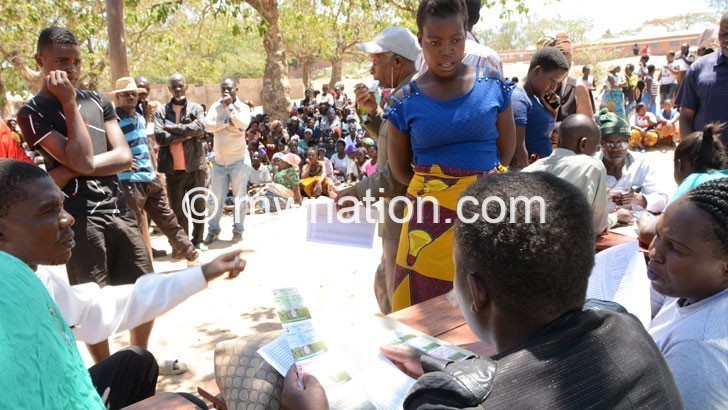Minister of Finance hints at Fisp reforms
Minister of Finance, Economic Planning and Development Joseph Mwanamvekha says government welcomes suggestions on how to reform the multi-billion kwacha Farm Input Subsidy Programme (Fisp) in view of challenges affecting the social protection programme.
The minister said this on Tuesday in Lilongwe on the sidelines of a signing ceremony of the release of the disaster risk financing worth $70 million (about K54 billion) by the World Bank to Malawi.

Mwanamvekha’s assertions come at a time a number of critics of the programme, including the Economics Association of Malawi (Ecama), have argued that the programme is not achieving its intended objectives.
“So, reforms will be there to make sure that the challenges are minimised,” he said, but could not divulge the possible reforms that government intends to undertake to shape the programme.
Since the programme was launched in 2005, there have been recurring irregularities, including challenges in dispatching the inputs to remote areas let alone redeeming of the coupons by beneficiaries.
The minister, reiterating President Peter Mutharika’s stance a week ago when he presented the State of the Nation Address (Sona) in Parliament, said Fisp has proved to be essential in ensuring both household and national food security.
“I want you to imagine a family in the village that over the years has not been able to produce because they have had no farm inputs.
“They have no fertiliser and they have no seed, and you know that there are specific areas where if you don’t apply fertiliser forget about producing anything,” he said.
From 2007/08 to 2011/12 fiscal years, expenditure on Fisp, constituted 73 percent of the entire Ministry of Agriculture, Irrigation and Water Development budget and only fell to about 50 percent in the 2017/18 fiscal year, following Fisp reforms, according to a latest World Bank analysis.
Last week, agriculture expert Tamani Nkhono-Mvula argued that maintaining Fisp in its current form is not a right thing for the country.
Three weeks ago, International Food Policy Research Institute (Ifpri) also faulted huge investments in Fisp, arguing it has discouraged diversification into higher value or more nutritious crops.
In its input into the 2019/20 national budget, the Malawi Economic Justice Network (Mejn) has also proposed to government a gradual reduction on Fisp beneficiaries and investment and channel such resources towards other productive interventions within the sector.





